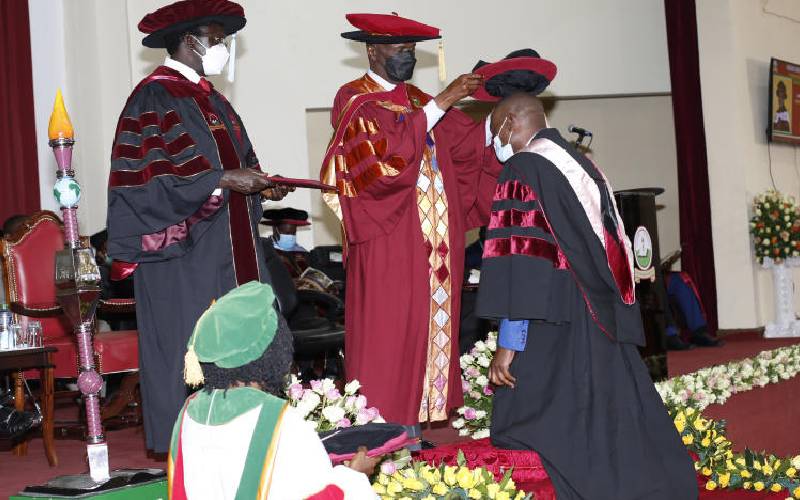
Kabarak university Chancellor and Baringo Senator Gideon Moi confer Doctor of Philosophy in Business administration Finance to Stephen Oloo Magadi during the Kabarak University 17th graduation ceremony at the university on December 17, 2021. [Kipsang Joseph, Standard]
It is sad that Egerton University is in the red. It is sadder that Egerton is not alone in this predicament. Things are tough for nearly every public university, all of which are grappling with a financial crisis that threatens to disrupt higher learning in Kenya.